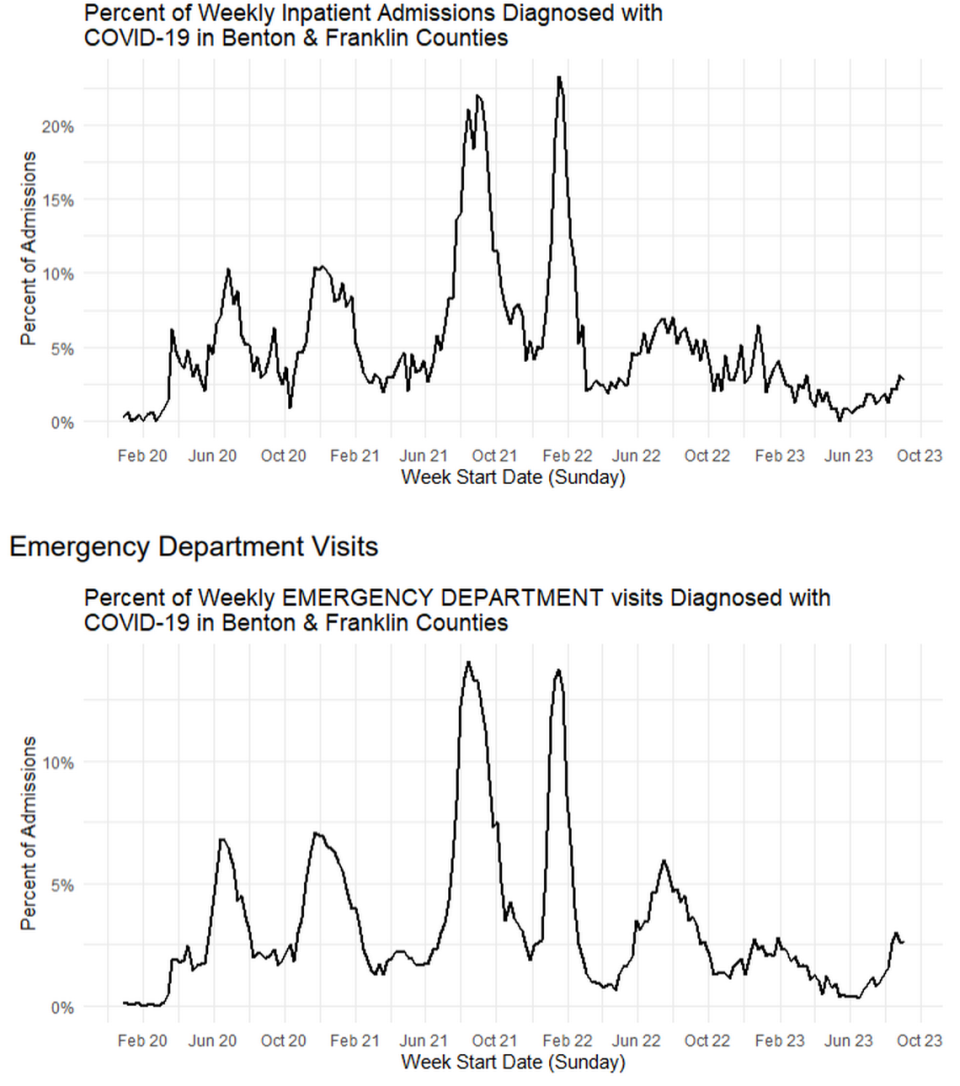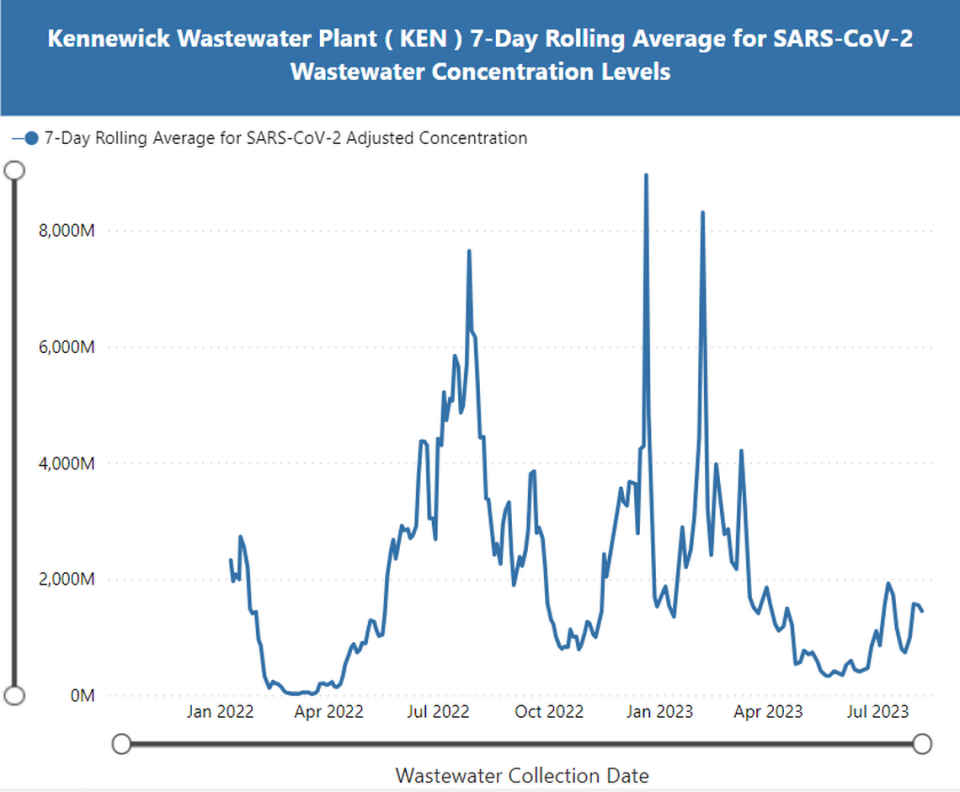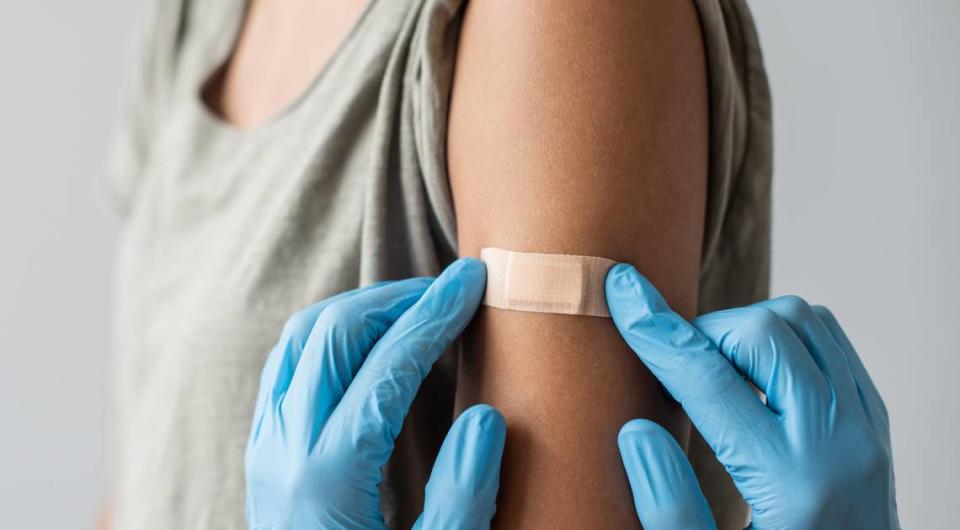COVID on the rise in Tri-Cities. RSV and flu cases could bring a triple threat
- Oops!Something went wrong.Please try again later.
The Tri-Cities is starting to see an uptick in COVID-19 cases, according to data from the Benton Franklin Health District.
An increase in cases started on the East Coast, with the Tri-Cities following about a month behind, as is typical for the area, said Dr. Larry Jecha, interim health officer for the Benton Franklin Health District.
The district is seeing more hospital patients diagnosed with COVID-19 and a larger percentage of emergency department patients diagnosed with COVID, as shown on its weekly respiratory hospitalization report.
More of the coronavirus that causes COVID-19 also is being found in samples of wastewater collected in Pasco and Kennewick.
The virus is expected to slowly build to a seasonal peak in late December nationally and likely a little later than that in the Tri-Cities. Cases could be a little lower than last year’s peak, Jecha told the Tri-City Herald.

The Centers for Disease Control and Prevention is expecting a respiratory illness season this fall and winter not too different than last year, with infections again showing up somewhat earlier than usual.
RSV and flu trends
Predictions are based in part by following the respiratory illness season in the Southern Hemisphere. There COVID-19 cases were slightly lower than the previous year and RSV and influenza seasons started earlier than expected based on historical trends, but were no worse than the year before, Jecha said.
Now RSV, or respiratory syncytial virus, is starting to be seen in Florida, and Jecha expects it to be in the Tri-Cities in November.
Checks for that virus, in addition to the coronavirus, are expected to start soon using samples collected at Tri-Cities wastewater plants.
Nationally flu is expected to peak in late November and RSV in early November, with the Tri-City lagging national trends by about a month.
The common cold season is starting now in the Tri-Cities, which happens with the start of the school season, Jecha said.
He recommends testing to make sure that a respiratory illness is not COVID-19. People with respiratory illnesses should wear masks in public to help limit infections passed onto other people.
Recommended vaccinations
“We have got a lot of good vaccinations,” Jecha said.
The Centers for Disease Control and Prevention’s Advisory Committee on Immunization Practices will meet Tuesday, Sept. 12, to determine who will be eligible for an updated COVID-19 vaccine.
The new COVID-19 vaccines should be available starting this month, and those eligible for them can get them at the same time as their annual flu shot.

Jecha recommends influenza vaccines in October for most people to make sure strong protection lasts through the flu season. Effectiveness starts to wane after about three months.
But it’s fine to get a flu shot in September if that is most convenient, he said.
An annual flu shot is recommended for people six months and older.
Three types of the flu vaccine are recommended by the CDC as more effective for people 65 and older. Some children may need two doses of the vaccine, with the second dose given four weeks after the first.
The COVID and flu vaccines may not prevent people from getting sick, but they are effective at preventing people at higher risk of serious illness from being hospitalized or dying from either of the infections, Jecha said.
An RSV vaccine also is newly available.
RSV is a common respiratory virus that usually causes mild, cold-like symptoms and most people recover in a week or two. But infants and older adults are more likely to develop severe RSV and need hospitalization.

People 60 or older are eligible to receive the RSV vaccine, which protects older adults from severe illness.
Jecha recommends they discuss whether they should get the vaccine with their health care provider. Those who have reduced immune system function, smoke or have lung disease are most likely to need it, he said.
The CDC also says the vaccine may be recommended by a health care provider for those with heart disease or those who live in a nursing home.
A dose of a monoclonal antibody that was approved by the Food and Drug Administration in July is recommended for infants.

